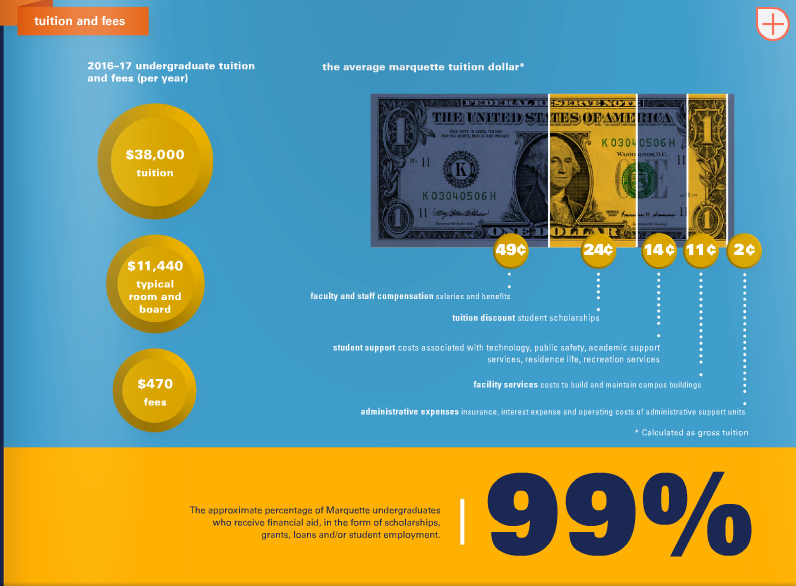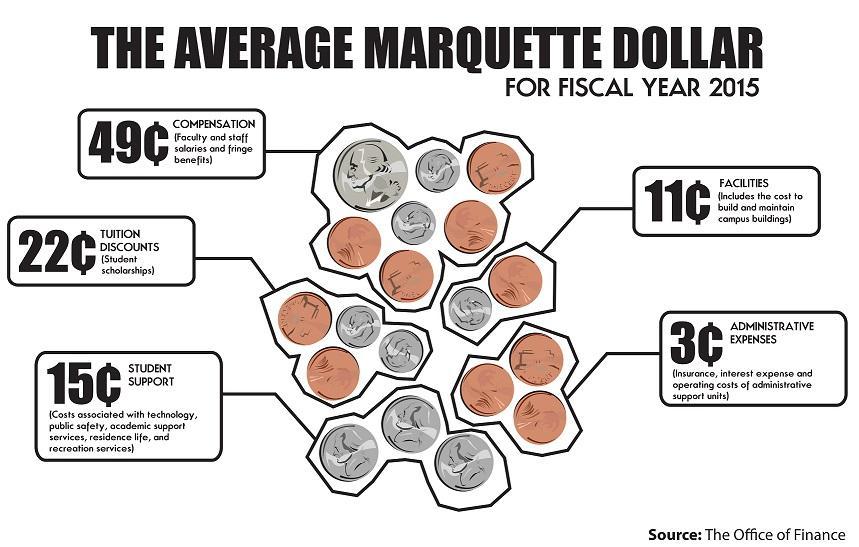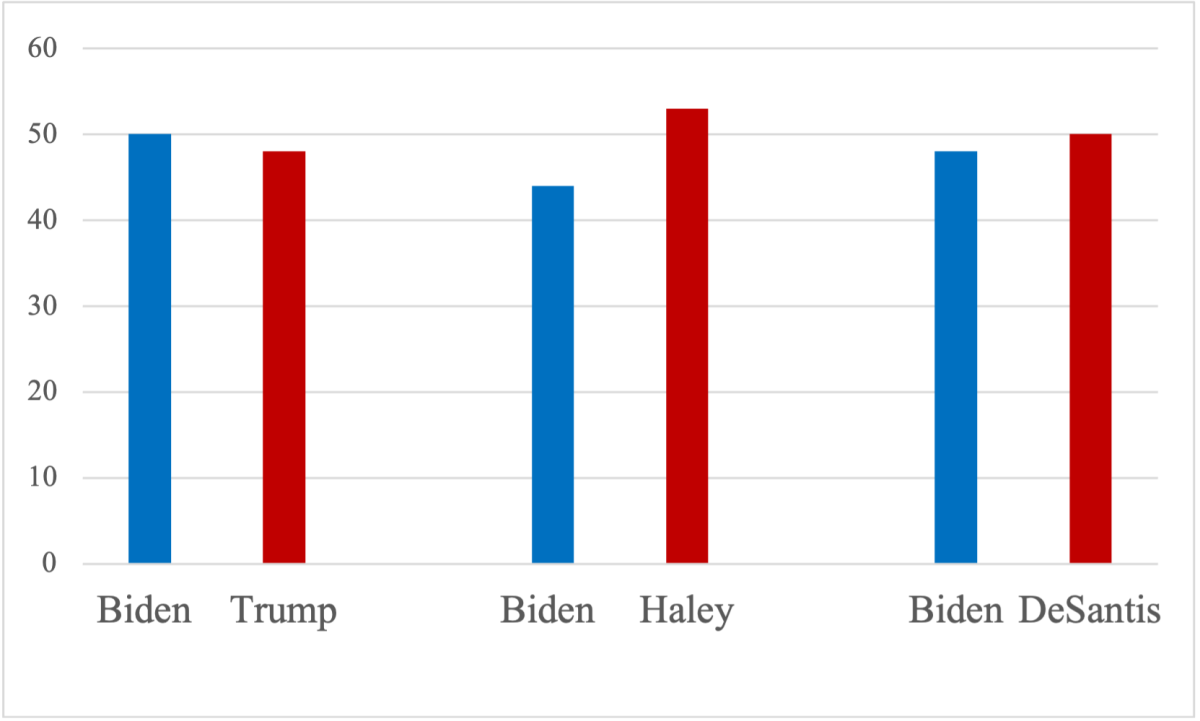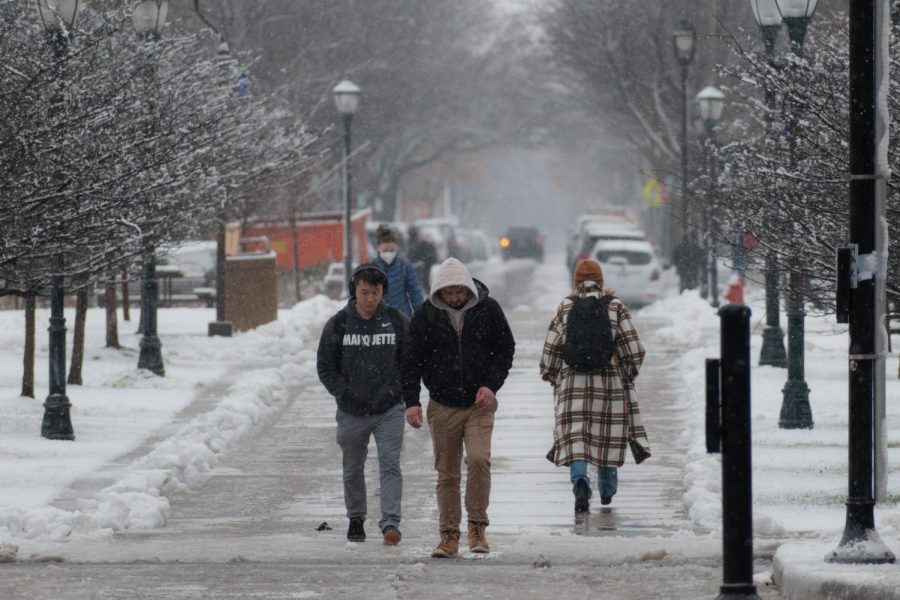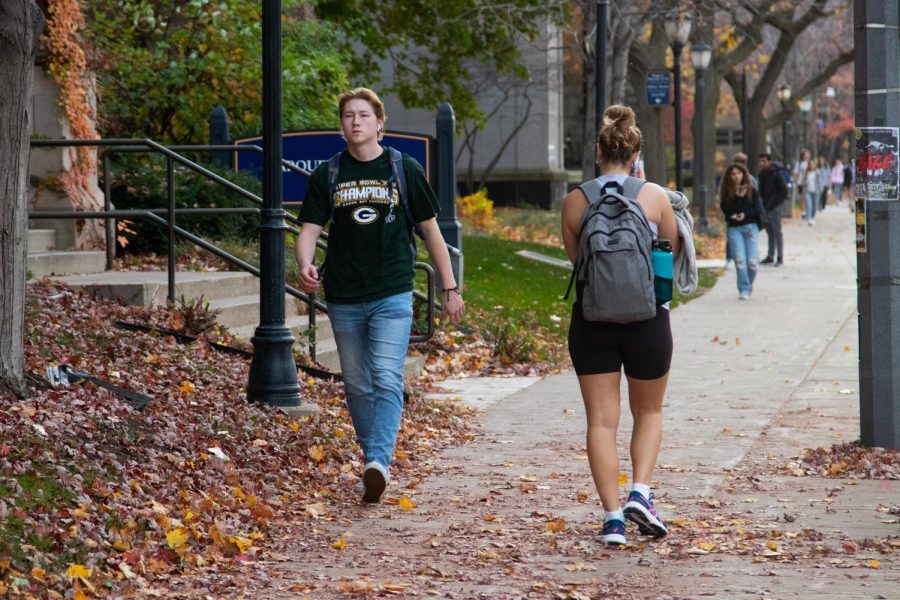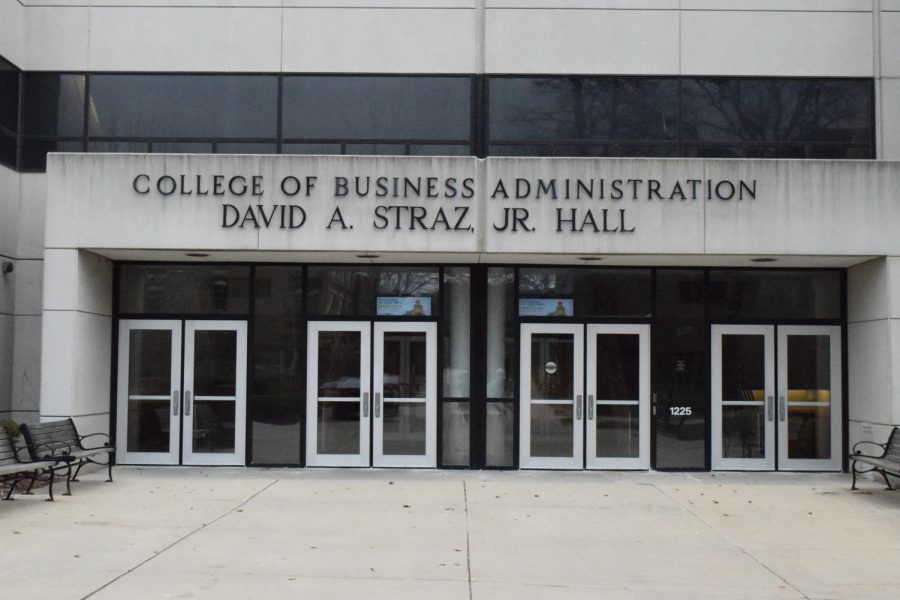Last week, I opened my email to the same disappointing news as everyone else: tuition increases for the next academic year.
“We know that the investment you’re making in their future involves a significant financial commitment, and we’re ever mindful of the sacrifices you make on their behalf,” University President Michael Lovell said.
We were assured that “Marquette’s tuition continues to rank in the bottom half of all Jesuit colleges and universities, and below the national average for all private colleges and universities,” and that “the 3.5 percent tuition increase is the same as 2015-’16 (increase) and matches the lowest percentage increase in the past five years.”
At a glance, 3.5 percent does seem modest. But the inflation rate for 2015 was only 0.7 percent. To put that in perspective, tuition rose at a rate five times that of inflation.
Wages and salaries – ours and our parents’ means of contributing to our education – have not grown so quickly, either. In 2015, compensation in the U.S. grew by only 2 percent.
If you were awarded a scholarship upon acceptance, that amount has increased 0 percent. So what gives?
John C. Lamb, Marquette’s vice president for finance and treasurer, explained in a statement, “Tuition increases are determined as part of the budgeting process and are not tied to inflation. As you probably know, inflation rates are at near-historic lows right now, however, expenses are not.” No kidding.
The greatest portion of our tuition expenses undoubtedly go to instructors and professors. But in 2015, their pay increased at roughly the same 2 percent of other civilian workers across the country.
Lamb also mentioned “keeping facilities properly maintained and developing new initiatives. Some of those recent new initiatives include the Strategic Innovation Fund, which allows for reinvestment across campus, and the Marquette University Police Department.” In other words: We are paying 3.5 percent more for the same services and for services that won’t be offered until after we’ve graduated.
As the Wire reported in December, there is no guarantee that any of us will even be able to find work to pay off student loans. The article reads, “In 2014, only 55 percent of graduates were employed full-time at the time of graduation.”
I am sure President Lovell is sincere when he claims to understand the “investment” and “sacrifices” our parents make for us to attend this fine university; it is telling that in 2015 the financial aid budget only increased 1.19 percent.
We all know that increasing tuition rates are not unique to Marquette. “If you look at the long-term trend, (college tuition) has been rising almost 6 percent above the rate of inflation,” Ray Franke, a professor of education at the University of Massachusetts, told CNBC. Is that kind of growth sustainable?
Terry Hartle, senior vice president of the American Council on Education, told Time that he thinks not. “Economic theory suggests prices cannot continue rising faster than incomes. At some point, tuition will outstrip individuals’ ability to pay for it.” So what can (or should) Marquette do to keep tuition feasible?
It doesn’t seem fair that the rate you sign on to as a freshman should be allowed to increase every year. It would make planning more certain for families if they knew what to expect every year from the very beginning. As modest as 3.5 percent might be, there is no guarantee that it will be as modest in the future – and the national trends suggest it probably won’t be.
But if that idea is unpalatable to the administration, they might also consider raising students’ scholarships in proportion to the tuition increases each year. And surely, more financial aid should be set aside.
With only 2 percent of tuition going towards administrative expenses, our administrators have proven themselves responsible, capable and conservative. For that reason, I trust they will continue to seek ways to keep Marquette accessible to as many people as possible.

